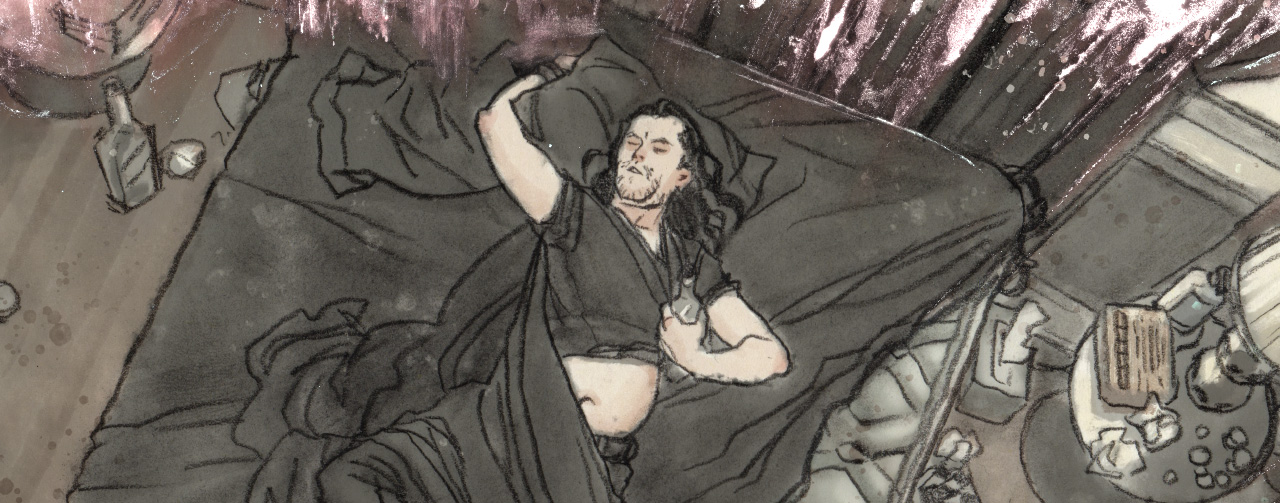 I’ve read a lot of self-help books on the subject of productivity and time management. The one piece of advice I’ve come across that made the biggest difference is this: You cannot add anything to your schedule without taking something else away.
I’ve read a lot of self-help books on the subject of productivity and time management. The one piece of advice I’ve come across that made the biggest difference is this: You cannot add anything to your schedule without taking something else away.
When we daydream about personal projects or long-term goals, we often think that if we can just be more disciplined, we will complete our goals. When another year has gone past and we have made less progress than we’d hoped, then guilt sets in. Why didn’t I spend more time on the thing I said I wanted to do?
The reason is that you can’t really create energy. Sure, you can exercise and improve your health, but even adding exercise to your schedule can’t happen unless you choose what to take out of your schedule to make room for it.
Most of us have tried taking sleep away, pulling an all-nighter or two to hit a deadline. It’s not a long-term or reliable solution. Sleep deprivation is literally used as torture. Lack of sleep is as detrimental to your cognition as being drunk. It causes accidents and reduces your willpower and decision-making ability. We need to preserve time for not just adequate sleep, but good sleep.
Removing leisure and relaxation time is not something to be done lightly, either. Without time to let the brain roam freely, and to play, what is the purpose of all the work you’re doing? You can look at the ways you play and decide on ones you wish were a part of your life, like playing a musical instrument or hiking. But approaching the idea of play as something that can be done incorrectly risks making your relaxation time into just another responsibility. This reduces its restorative effect. So we need to hold time in which we expect nothing from ourselves.
The thing that gave me the most time back was identifying behaviors I consider expendable. Ones which don’t give any cumulative benefit. Behaviors in which no skill is built, or which build a skill that doesn’t benefit my goals. Most of all, behaviors that are addictive or difficult to control the amount of time they consume.
Many of us spend a lot of time on our phones. They are super addictive. At least for me, just trying to reduce social media use was so difficult I’ve had to impose very restrictive artificial limits. I’ve used app timers, and eventually removed the apps from my phone.
I used to identify as a gamer, and I have had wonderful narrative and learning experiences playing video games. But it is too easy for me to spend several hours immersed in a game, and come out of it with sore wrists. The overlap in repetitive stress pain triggers between using a controller and the art work I do for a living means that games can be directly harmful for me.
Binge-watching shows is another time sink that takes away from goals I claim to have. As much as shows and movies can add meaning and interest to life, time spent consuming can balloon past what I would feel good about looking back.
So: Social media, games, and shows/movies. Those three behaviors are things I gain enjoyment out of, but their cumulative influence on my time can easily grow to become detrimental. When I identified leisure behaviors I wished were a part of my life, like playing music, I tried replacing some of the time I’d have spent building a trait I value less, like being a completionist in games or being current on streaming shows. This change in time management thinking has resulted in the successful development of new character traits I had wanted, but failed to spend time on in the past.
Now when I think about things I’d like to do, I look at what I currently spend my time on and identify what can be replaced. If I value everything I spend my days on too much to find something I’m willing to replace, then that shiny new idea might not be as exciting as I thought. But if it’s worth doing, I find what it can replace–and then it might actually get done.








Growing up when I did has influenced my choices for the better. HOWEVER, I too have fallen into traps , mostly during covid. It is so sad to think of the time one wastes…You are wise to see your life in this way. So happy that you have written this article. I think so many people need to hear this. Life is too short.
Yeah, I try to be giving on myself for “wasting” time too – if all I had energy for was reading the news, maybe I was in desperate need of a break. I look at it as a symptom and look for how to support myself better.
Relate to this so much, lol. That’s a great outlook that we cannot create more time, but have to replace the time we’ve already slated for something else. Here I was struggling to create more time!
A life hack for video games, because man they can be a time sink and addicting, I’ve started uninstalling all of my games. So, if I want to launch one up, I have to reinstall it. This has often resulted in me doing something else more productive.
Yes, and on the flip side, restricting how much you game makes a gaming session special. When I play a game or watch something now, I make it an occasion. It’s made me enjoy that time more knowing I have set aside an evening for it, rather than treat it as a bad habit.
Great article! And I’m with you, it’s been cutting out the unrewarding little things that has really opened up my time. Weirdly, even something as silly like swapping from a TV show to movies instead has been so much more rewarding! I’ll watch 12 hours of a TV show, get an incomplete story, and still want more. But in 90 minutes, a movie fulfills me SO much more, and is so much more memorable in the end, that I don’t even feel the need to turn the TV on for days afterwards. Between television shows and social media, things really are designed to keep us consuming media mindlessly, leaving no time for the more important stuff.
When we moved into our new house we didn’t ever set up a tv, but got a projector for the living room instead. This means we *can’t* watch shows or movies during the day, since it’s too bright and we’d have to put in blackout curtains–but we haven’t missed it. Now a movie or an episode of a show are a whole actual date, or a reason to have family or friends visit. And yeah, it makes the activity of watching something so much more fulfilling!
Thanks for sharing!
I have pretty much given up on playing 3d games, now I mostly play 2d games with sprite art. I love pixel art and watching my favourite medium in motion is unbelievably rewarding, i’m just blown away by the decisions the pros make